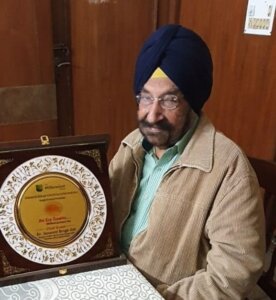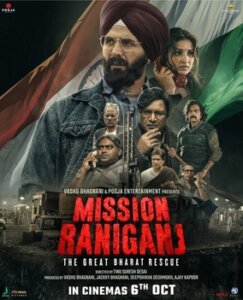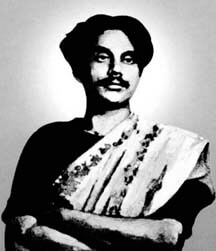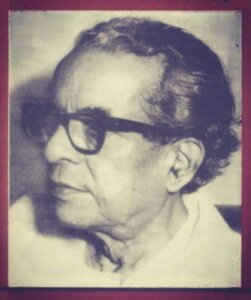(This updated news item incorporates corrections and amendments requested by Mr Suvojit Chatterjee, Project Supervisor, on 25 May 2024)
Denise Love, BACSA Projects Coordinator, reports on a new BACSA project at Raniganj, in West Bengal:
‘BACSA has agreed to give a grant of £2143 as a contribution to the work of the Asansol Heritage Research Group (AHRG) in its investigation of Raniganj cemetery and its burial records. The digitised burials information produced will be added to the BACSA burials database.

(Photo: Tridev Ruidas, AHRG) Left to right: Hemonta Mondal, AHRG; Dr Santanu Banerjee, Assistant Professor of English and Curator of Setubandha Museum, Kazi Nazrul University, Asansol (and a founding member of AHRG); Anne Buddle, BACSA (FSA Scotland and FRAS, trustee of Kolkata Scottish Heritage Trust, and of Museum of Lead Mining, Wanlockhead); Nelson Fernandez (Director, NFA International Arts & Culture); Fr Sumanta Das, Raniganj Church
The AHRG is a collection of local academics and teachers interested in the social and industrial heritage of this part of West Bengal, known for the first coal mine in India and for its iron and steel industries. The railways came to Raniganj in 1855 and a good number of Europeans settled in the growing town. AHRG organises heritage walks around the area of Raniganj and Asansol, including its stations, colonial era housing, churches and cemeteries.
The cemetery was established in 1863 and has about 300 graves, but the burial records list many more. The records also list both European and Indian Christian burials and identify the various castes of the latter. AHRG’s proposal to BACSA commented: ‘Since Raniganj was an elephant camp as well as a small cantonment during the Mutiny of 1857 and the divisional railway office operated from there, its importance is beyond question . . this cemetery has also been remembered as a place of regular visit of two noted Bengali authors, Kazi Nazrul Islam and Shailajananda Mukhopadhyay, when they were buddies at school.’
The members of AHRG involved in the Digitalization of Archives, and their respective roles, are:
Project Supervisors: Dr Santanu Banerjee, Hemonta Mondal and Suvojit Chatterjee.
Archival Partner and Digitalization and Meta Data Consultant: Mr Rajarshi Das.
Archival Partner and Custodian of Original Material: Rev. Sumanta Das.
Project Assistant: Tridev Ruidas.
As well as using our grant for the documentation of the burials, AHRG will use its own resources to survey the cemetery, photograph the graves and engage local communities and authorities to generate interest in the historic site.’
Denise Love
Ed. notes:
•Raniganj Coalfield
Currently owned by Eastern Coalfields Limited, the Raniganj coalfield covers around 170 square miles (440 km²).The first coal mine in India was founded there in 1774, after John Sumner and Suetonius Grant Heatley, of the British East India Company, found coal near Ethora (in present-day Salanpur). Over the next two centuries Raniganj became the major producer of coal in India.
The 2023 ‘disaster-thriller’ film Mission Raniganj: The Great Bharat Rescue tells the story of the rescue work following a flooding accident at Mahabir Colliery, Raniganj, on 23 November 1989.
A total of 71 miners (out of a potential 220) were trapped underground when the mineshaft became inundated. Six people lost their lives, but 65 were rescued, mainly due to the ingenuity, and leadership, of Jaswant Singh Gill, Chief Mining Engineer, who, in 1991, received the Sarvottan Jeevan Raksha Pradak award (‘for conspicuous courage under circumstances of very great danger to the life of the rescuer’) from President Ramaswamy Venkataraman, for his achievement.


(Copyright: Pooja Entertainment)
•Bengali Writers
The two Bengali authors who, as schoolboys, regularly visited Raniganj Cemetery:

(Photo: Banglapedia)

(Photo: Courtesy of Asansol Heritage Research Group, personal archive)
As Banglapedia (‘National Encyclopedia of Bangladesh’) explains: ‘Shailajananda started his education at Raniganj School, where Kazi Nazrul Islam was among his classmates’.
Famous as both a novelist and film director, Shailajananda Mukhopadhyay (1901-1976) initially composed poems, but afterwards concentrated on fiction. He wrote several novels, many depicting the lives of labourers and coal miners. The films he directed were often based on his own stories.
His schoolfriend Kazi Nazrul Islam (1899-1976), the ‘rebel poet’, portrayed contemporary social and political phenomena in his poems, which often deal with fundamental conflicts of human civilisation. Now considered ‘the national poet of Bangladesh’, he was buried with state honour on Dhaka University campus, on the northern side of Dhaka University mosque.
Rachel Magowan
(Suggestions for BACSA website news items are always welcome – please send them to ‘comms@bacsa.org.uk’)
